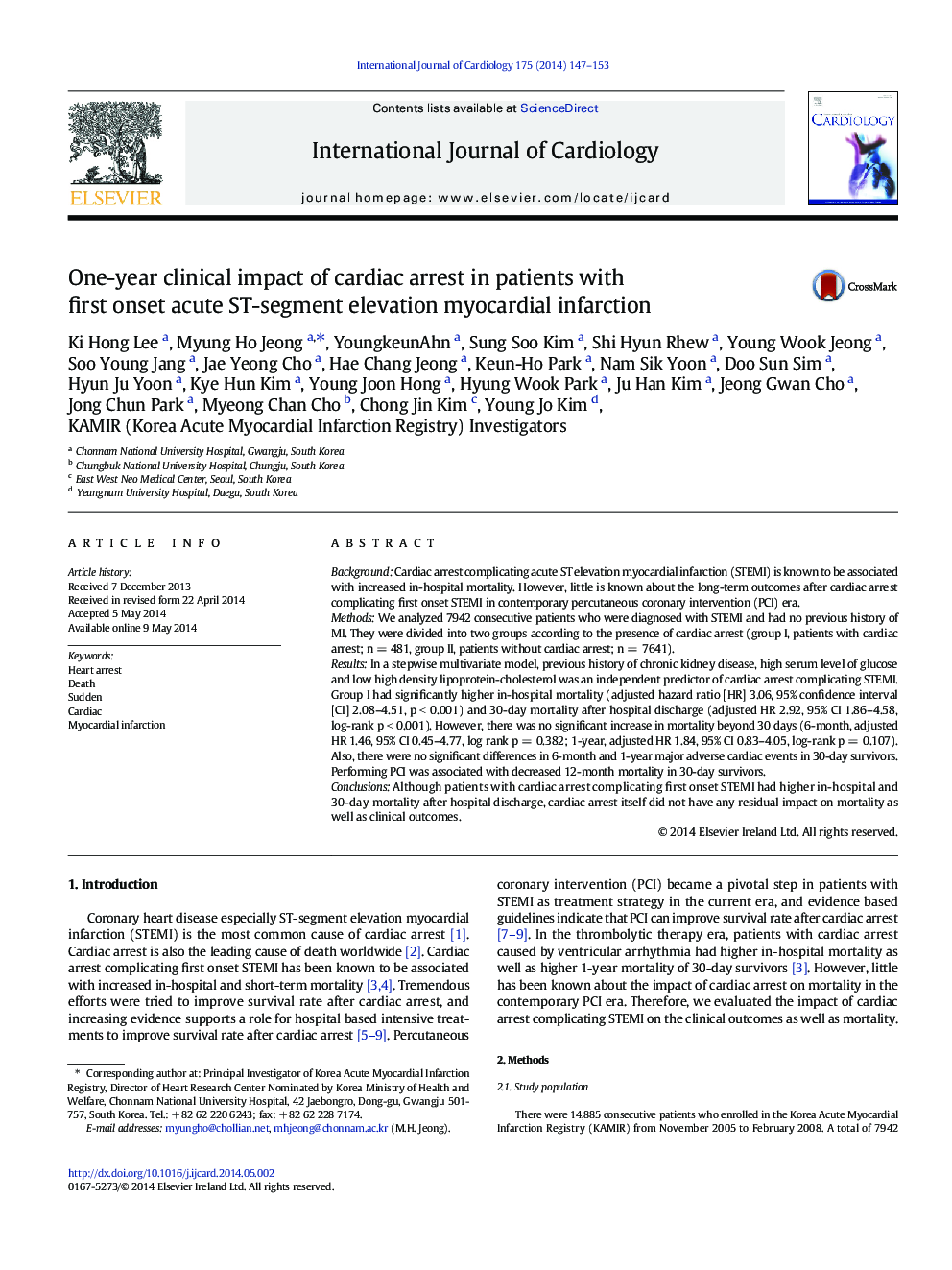| کد مقاله | کد نشریه | سال انتشار | مقاله انگلیسی | نسخه تمام متن |
|---|---|---|---|---|
| 5971243 | 1576183 | 2014 | 7 صفحه PDF | دانلود رایگان |

- Cardiac arrest complicating first ST-segment elevation myocardial infarction was associated with increased in-hospital and 30-day mortality.
- Cardiac arrest did not have any residual impact on mortality and clinical outcomes in 30-day survivors in percutaneous coronary intervention era.
- Previous histories of chronic kidney disease, high serum glucose and low high density lipoprotein-cholesterol were independent predictors of cardiac arrest.
BackgroundCardiac arrest complicating acute ST elevation myocardial infarction (STEMI) is known to be associated with increased in-hospital mortality. However, little is known about the long-term outcomes after cardiac arrest complicating first onset STEMI in contemporary percutaneous coronary intervention (PCI) era.MethodsWe analyzed 7942 consecutive patients who were diagnosed with STEMI and had no previous history of MI. They were divided into two groups according to the presence of cardiac arrest (group I, patients with cardiac arrest; n = 481, group II, patients without cardiac arrest; n = 7641).ResultsIn a stepwise multivariate model, previous history of chronic kidney disease, high serum level of glucose and low high density lipoprotein-cholesterol was an independent predictor of cardiac arrest complicating STEMI. Group I had significantly higher in-hospital mortality (adjusted hazard ratio [HR] 3.06, 95% confidence interval [CI] 2.08-4.51, p < 0.001) and 30-day mortality after hospital discharge (adjusted HR 2.92, 95% CI 1.86-4.58, log-rank p < 0.001). However, there was no significant increase in mortality beyond 30 days (6-month, adjusted HR 1.46, 95% CI 0.45-4.77, log rank p = 0.382; 1-year, adjusted HR 1.84, 95% CI 0.83-4.05, log-rank p = 0.107). Also, there were no significant differences in 6-month and 1-year major adverse cardiac events in 30-day survivors. Performing PCI was associated with decreased 12-month mortality in 30-day survivors.ConclusionsAlthough patients with cardiac arrest complicating first onset STEMI had higher in-hospital and 30-day mortality after hospital discharge, cardiac arrest itself did not have any residual impact on mortality as well as clinical outcomes.
Journal: International Journal of Cardiology - Volume 175, Issue 1, 15 July 2014, Pages 147-153